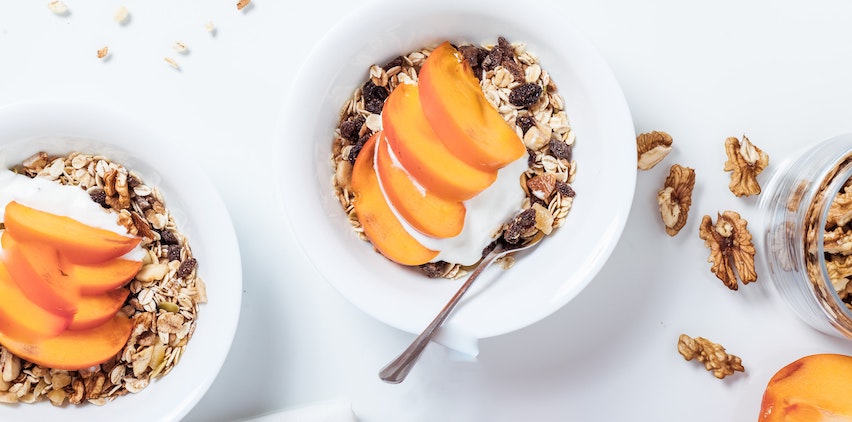

February 15, 2021 | Categories: Weight Loss & Nutrition
Is it possible to go low-carb a plant-based diet? Eating fewer carbs is indeed harder when you’re plant-based since when you first give up animal products, there’s a tendency to pile on processed foods and carbs, and fill up on pasta, rice, cereal and crackers or chips. “People tend to go overboard on the carbs when they go vegetarian, plant-based, or even flexitarian,” says Bonnie Taub-Dix, MA, RD, CDN, author of Read It Before You Eat It. It’s easy to fill up on our favorite food group. Here’s how to avoid the carb trap, and stay fit, healthy and lean on a plant-based diet. (Oh, and if you’re having trouble losing weight on a plant-based diet, this could be the reason why.)
One of the reasons plant-based dieters are likely to overdo the carbs is that they’re really easy to make, find, and eat, says Taub-Dix. “Especially for people who are on the go. Muffins, crackers, bread or rolls are the kind of the foods that you reach for, because they’re so easy, portable, and their prep is basically nonexistent.”
In some cases, the economic ease of eating carbs is a factor. A carb-heavy snack like pretzels is less expensive than nuts, or another plant-based snack. Of course seeds and nuts or a piece of fruit (even though it has carbs is full of fiber) would be a better choice. (Related: The Best Low Carb Diet for Your Goal)
“One of the main reasons we all love carbs is that they are the king of comfort,” says Taub-Dix. “When you eat carbohydrates, especially carbohydrates that are pure, like a piece of whole-grain toast, the carbohydrates get absorbed and stimulate the release of the feel-good brain chemical serotonin, which provides comfort feelings.” That’s why you’re more likely to reach for a carb snack when you’re feeling stressed, rather than carrots and hummus. Your body is wired to crave carbs for that serotonin release that will improve your mood.
When you first decide to reduce carbs from your plant-based diet, assess how many grams you’re eating daily so you know how much you need to dial it back. The Dietary Guidelines for Americans say that 45 to 65 percent of your diet should be carbohydrates (about 225 to 325 grams per day). That’s if you’re following a 2,000-calorie diet, which is often used as an example. If you’re eating less than 2,000 calories, dial it down accordingly.
“Not everyone needs a 2,000-calorie diet,” says Taub-Dix. “And for some people, 325 grams is a lot of carbs each day and not necessary.” If you’re trying to lose weight, experiment within the lower end of the range. Download an app that will help you track carb counts to find a range you feel satisfied with while creating balanced meals. We like MyFitnessPal, Carb Manager, Senza, and Macros to name a few.
Remember that carbs aren’t just grains, potatoes, pasta, and rice. Sources of naturally occurring carbs include fruits, vegetables, dairy, nuts, seeds, and legumes. Choose carbs that are high in fiber, unprocessed, and filling, like carrots, broccoli, artichokes, and beets.
The most important thing to calculate when choosing carbs is “net carbs” which are the carbs absorbed by the body. To calculate your net carbs, subtract the fiber in your food from your carbs. That is the number of carbs that your body uses as fuel, or if you don’t use them (walking, running, commuting or just sitting at your desk) those carbs are the ones slated to be stored as fat.
Read the full article on The Beet.
Leave a Reply